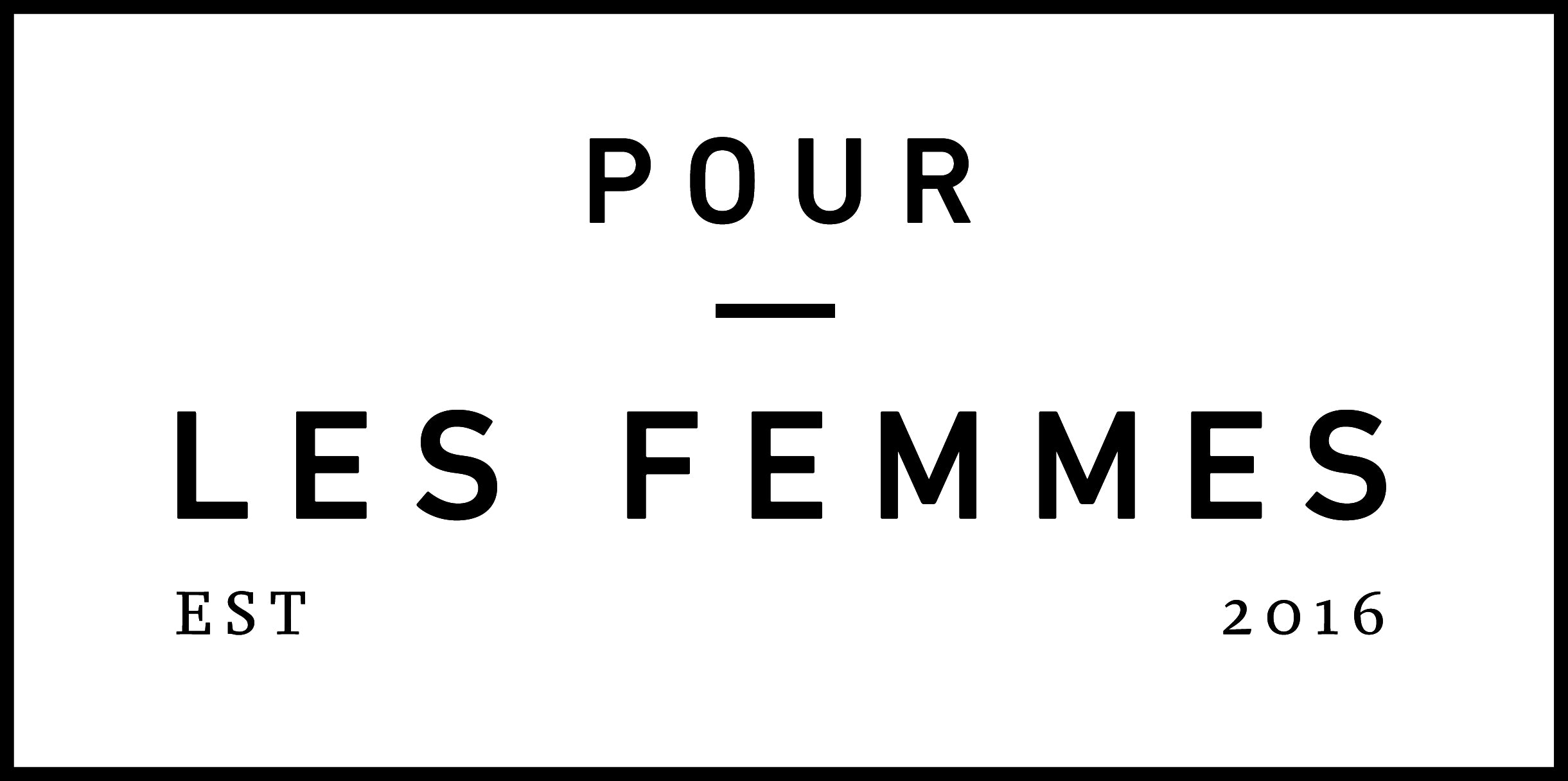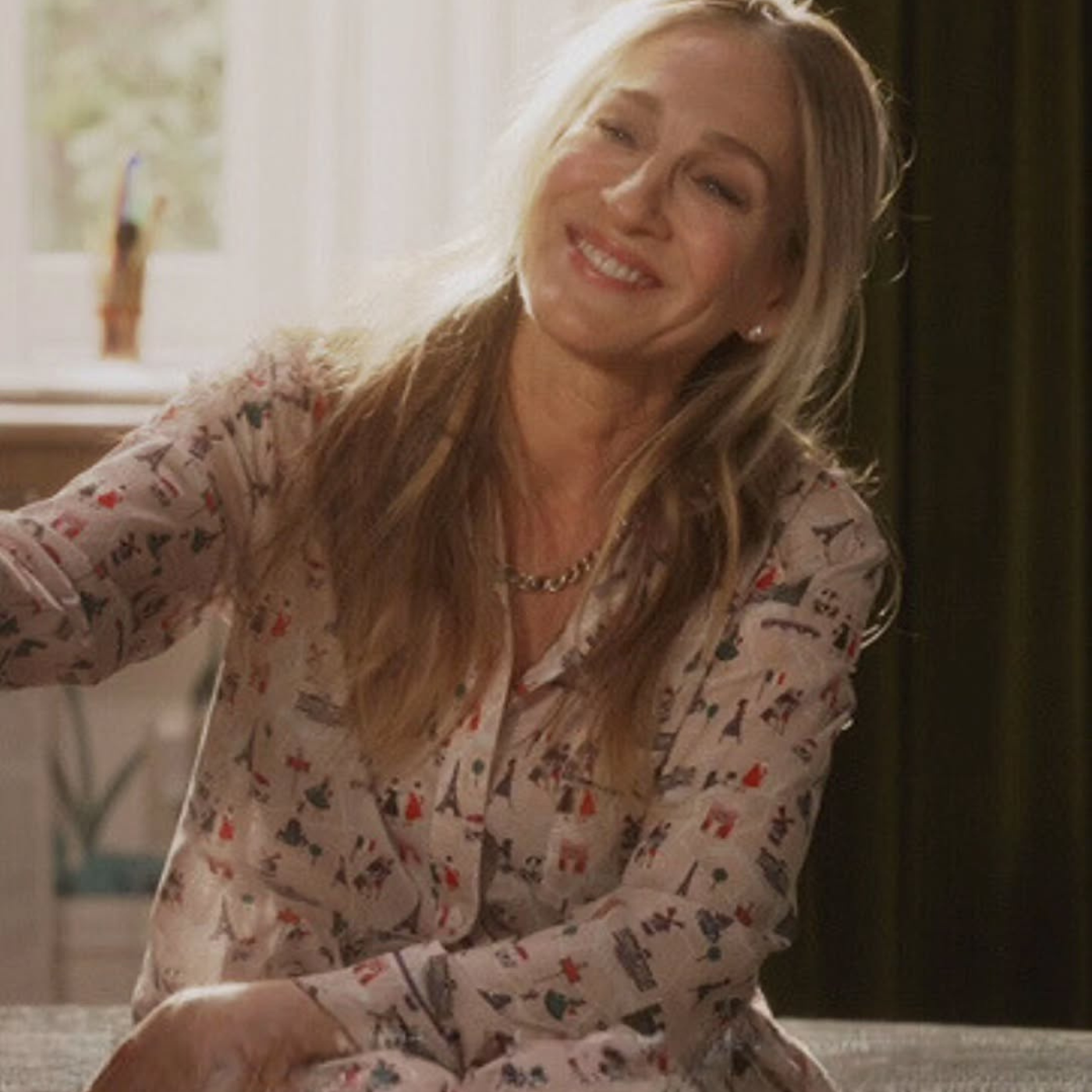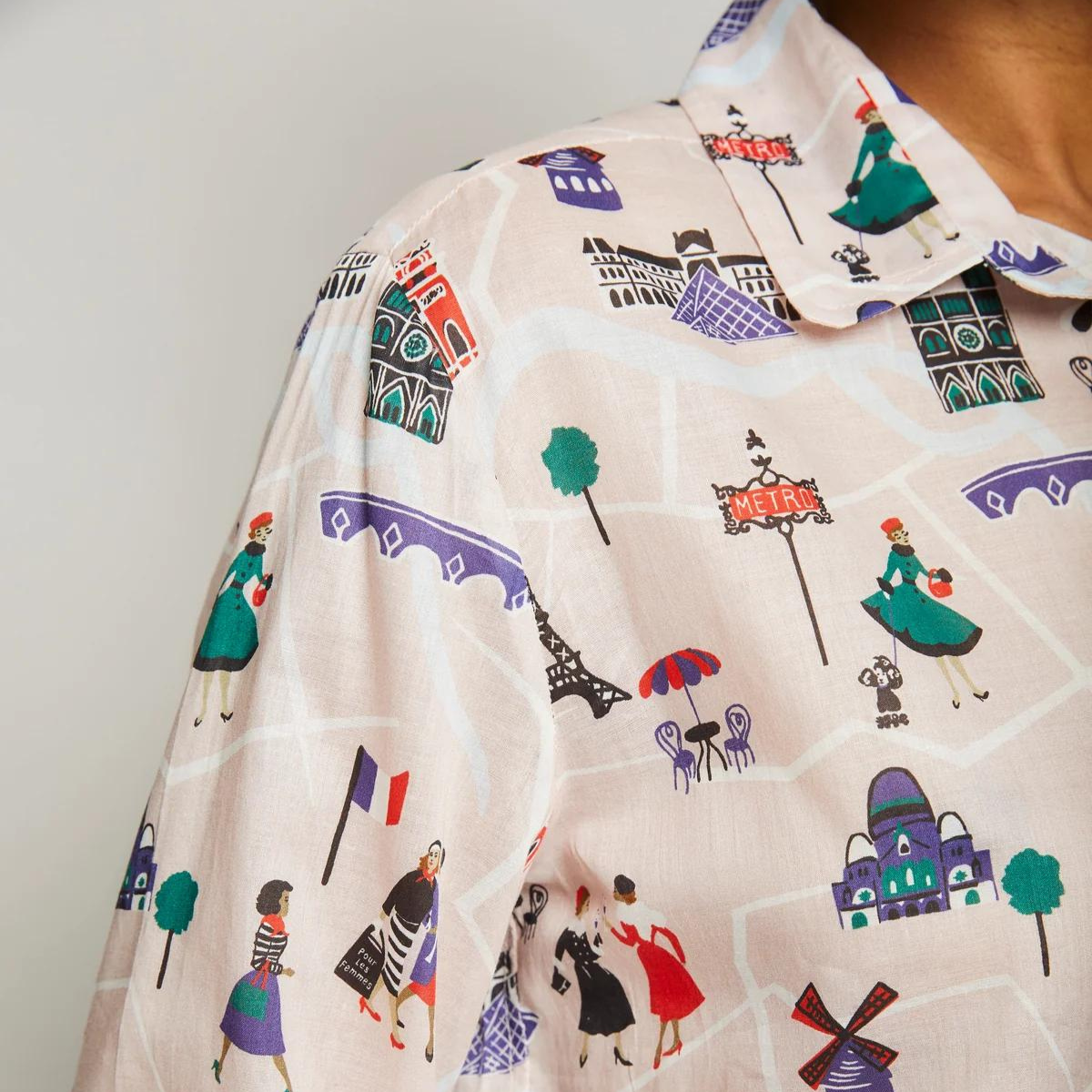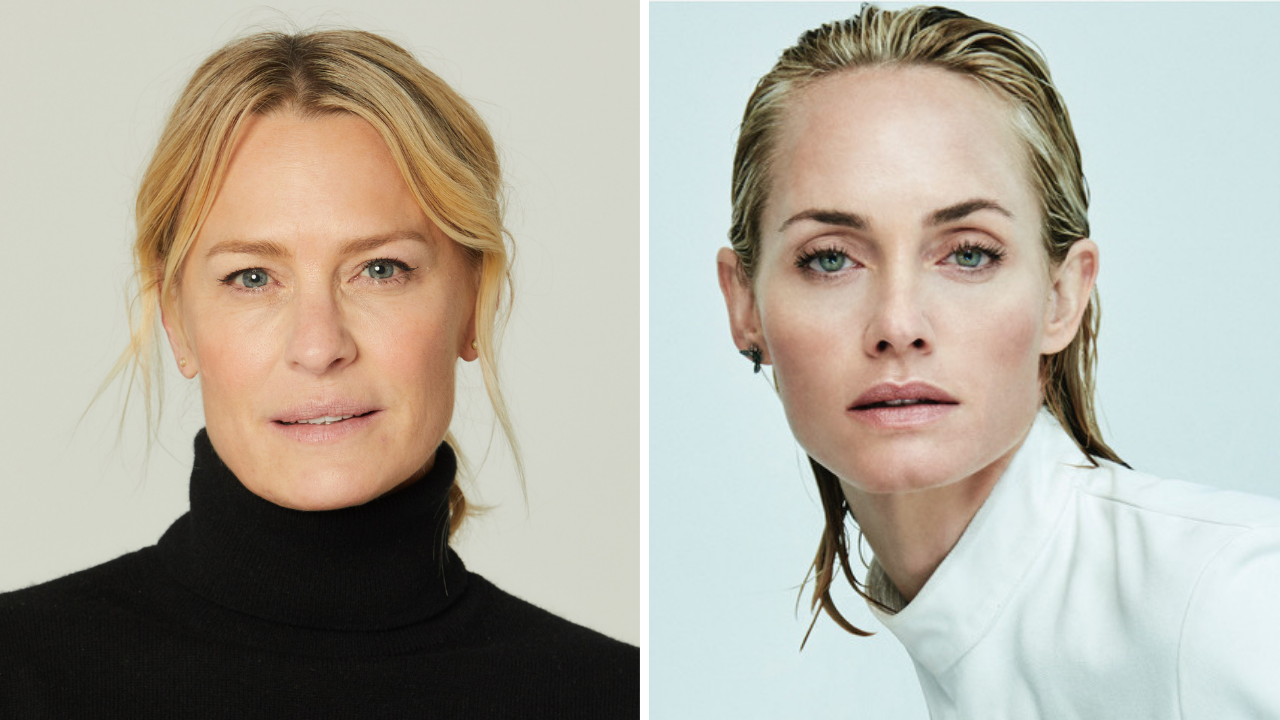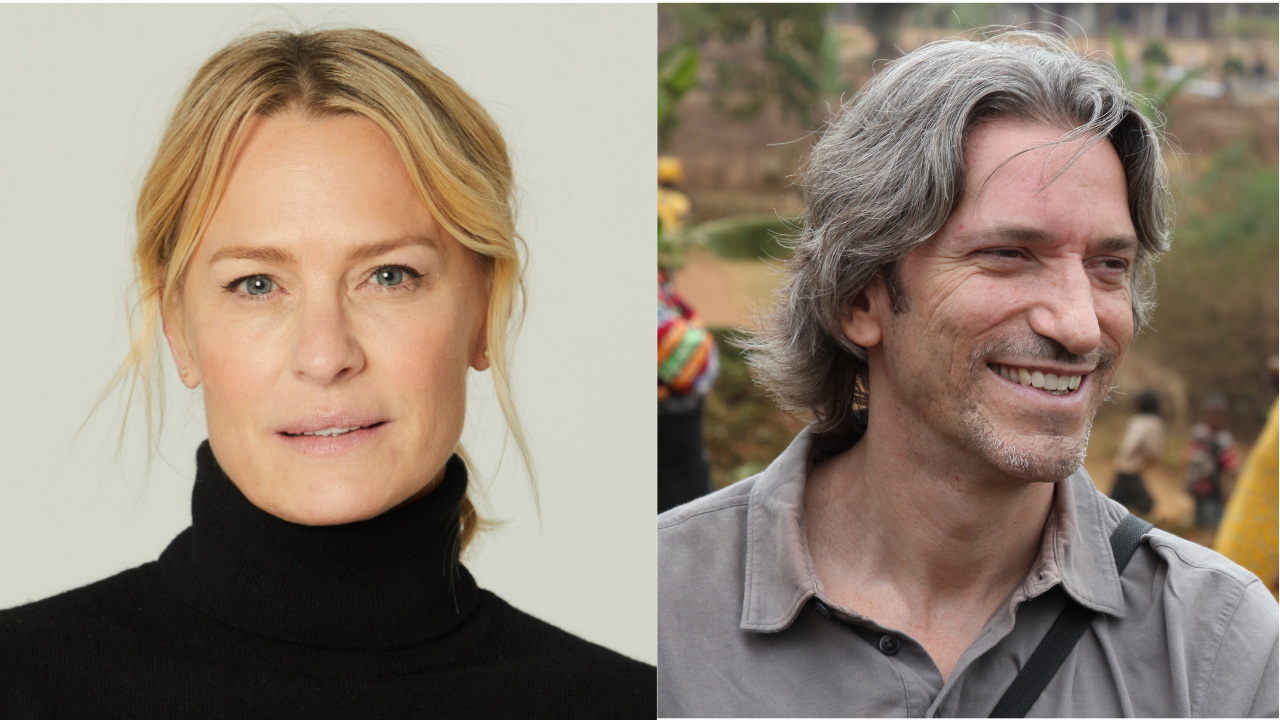Transcript
ROBIN
Hi Amber!
AMBER
Hi, Robin!
ROBIN
Welcome to Pillow Talk! Thank you so much for doing this.
AMBER
Thank you for having me.
I have my pillow. I'm ready to talk,
ROBIN
You're sitting in bed in Pour Les Femmes pajamas.
AMBER
Exactly. Aren't they beautiful?
ROBIN
The amount of titles that you have, by the way.
AMBER
Should we clean that up
ROBIN
Model, actress environmentalist,
AMBER
you know it's not me!
ROBIN
climate change leader, all the great things. Like we have so much, we could talk about, and I know we're gonna kind of centralize on sustainability and fashion. What got you interested in being more conscious around clothing.
AMBER
Well, I started modeling really young, and I saw when I was growing up, my mom was in a bit of an. She was a normal person but she was very active in the community and I saw her protest and help stop a nuclear power plant from being built in Oklahoma on native land near our town. And it kind of instilled something in me and my mom always said you know you, you have to work for a better future and you have to give to your community and you need to be of service and remember there's people who, someone will always have less than you do and will always need help. And so as I started modeling really young. You know that seed was planted and I, I kind of felt a discrepancy very early on within the fashion industry and in my own values, and I really didn't understand what it was. And then I kind of stepped away and started acting and then I decided I wanted to get back into fashion but in a new way and, and to carry my values back into the industry and so I had already become more of an activist and for the, for the environment and for animals and. For me, I started really researching what was happening, how we made our clothes. And when I realized that the environment and social justice were all correlated to actually how we make our clothes. I realized that I had an obligation within the industry to start speaking about it and do something about it.
ROBIN
And I want you to talk about that because we're now starting to practice slow fashion. So can you tell me like what does it mean to buy responsibly, what is slow fashion to you?
AMBER
Conscious responsible, sustainable. slow fashion, we're all those are all kind of, you know, they all live in the same arena together. But basically, the current system of fashion we just keep extrapolating new natural resources and wasting by polluting water polluting the air polluting soil, soil is a huge issue right now because it's a huge carbon capture and we're just the soils are basically dead and most places where they grow cotton and things like that. Obviously we're polluting the oceans you know that it's, I could go on and on the destruction what we're doing with natural resources. Not to mention that most people don't realize that clothing or textiles, even your pillowcases cannot be thrown in the trash, because the municipally trash, they don't they don't they just throw this in the garbage, it will just go into the landfill. And it takes it sometimes it doesn't even break down if it's polyester doesn't break down, it's petroleum based, it'll last be in there for hundreds and hundreds of years. So, the amount of waste that is not getting actually reuse is tremendous. So it's clogging up landfills. And then you're losing resources because you've already used all these natural resources, you're losing resources that you could actually use to break down and make new again. So the newest kind of idea in fashion, I'd say that's that I think we're all banking on is circularity. So this idea that this garment right here is 100% cotton, it would be sent back to you or sent back to another facility, be broken down into a new fiber of cotton new textile and made into something else, whether it's another pajama for you or it's pillowcases, but it would be broken down into the simplest form which would be a yarn, and made into a new material. And so that's the idea behind circularity and slow fashion is really the process. It's about just slowing things down and being mindful in the process of where things are made how they're made, are you going to do a take back program. Less is more. The idea that maybe we don't need to think of success as bloated profit so that, you know, we just keep building and building and taking and taking but yet, we're successful if the people in the planet are well taken care of and we're building, you know even profit financial profit at the same time. So I don't know if that totally makes sense and you nailed it because I was just about to ask you about that. What would you say to the public to to the average consumer, how they could help, buy better buy be thoughtful about what you buy so you know if you buy something that's, that's not very expensive. You have to remember there's a hidden costs behind it. Generally speaking, something that you buy for, you know, under $20 a t shirt or whatever, that seems expendable. There's a much bigger cost behind it that is, it's, it's a hidden cost and it's a dark cost that's being paid somebody suffering who's making it more than likely they're being paid wages that are way below normal way below living wages. And they're also maybe being forced to work, and in hideous conditions, most of the time. And then there's also the the costume, which we're putting the planet under which we've spoken about before. So it's being really mindful. It would be better to invest in a T shirt that you know is made, maybe with a smaller company that's made maybe closer to where you live, or maybe it's organic cotton or it's, you know, a bamboo fiber, or you know it's regenerated cotton. It would be better to invest in something like that and spend a little bit more money than it is to buy something cheaper that probably is going to get a hole in it sooner. Anyway, um, The other thing is, reusing things like I think people forget that they can like change a hemline or, you know, cut off those jeans that maybe the length is sort of weird now and they can make them into jean shorts or you can make even a skirt, out of a pair of jeans like there's so much you can do with an outfit I change hem links on dresses all the time.
You can dye things. You can sell them, or you can give them away so it's it's reuse repurpose and re envision things, and reduce, you know, it's also about like what do I really need and. And if I'm gonna invest in something like these beautiful pajamas, I know they're gonna last me a really long time because they're made with integrity, they're well made. The fibers are good, so you invest in something though you might spend a little more, you invest in something that you're going to have long term. And I think that's ultimately, you know, the best guide to shopping. And then lastly, you can buy vintage and you can buy and you can also swap with friends,
ROBIN
We use the remnants of our fabrics to make eye masks and lingerie bags that your pajama set comes in.
AMBER
Exactly. And hopefully, the future is about, send back programs so that like, you know, when someone is either stained their pajamas, or has holes in them and they've mended them the best they can, if they want, they can send them back to you and then you would repurpose them and make them into something new that is the hope. What a great idea. Yeah, that's the hope of where we where we see fashion going or where I see fashion going, is that we will not be making any new fibers that we will use what's already in our system because we have, we have more than enough. You know, and the other problem with people think when they clean out their closet. And they give it to say like goodwill, or Salvation Army. They think well I cleaned it out it's like out of sight, out of mind. Well some of that does stay there and get sold, but a lot of it ends up in third world countries. And the problem with that is, it's killing their economy. So we're creating this vicious cycle because their local artisans and their local tailors and seamstresses are not getting work anymore because they're buying cheap, you know gap t shirts or whoever that worked like tossing when we're when we're over it,
ROBIN
where I think people, they're not connecting is, what does that have to do with me that has to do with the buyer.
AMBER
Yeah,
ROBIN
We don't want to say to people don't buy, it's how to buy prudently.
ROBIN
Yes, and to look for companies like you know, your company, for example, you know you stand for something you have values you're giving back to a community you're not over. You're not over producing which, you know, when you over produce. You make too much. A lot of it goes in landfill, or they burn it, they literally burn it. No way. Oh yeah it's horrible. I had no idea. Yeah, even huge luxury companies have been kind of condemned in the last few years because they make all this product and they make way too much of it, it doesn't sell, and then because they don't want it out on the market for cheap. Right, they burn it. And so you basically have just taken all these natural resources, all of these artisans labor, and you're gonna light it on fire. And so, supporting brands that are actually trying to do the right thing is really also key so if, if you want to buy you know you can you can shop. But shop from the right people, and there's, you know companies have CSR reports, which is social responsibility on most everybody has it now on their website. Some you can see more transparency and the other ones you can kind of you know you can tell when they're not being authentic and they're either greenwashing or they're full of shit. So it's really been, I think, conscientious and mindful,
ROBIN
It's accessible now for people to see the traceability.
AMBER
The more that people ask for this information and the more that we demand, you know, things be made the right way responsibly, the more companies are obliged to change. And I think that's also there's, you know not everybody is like you and your partner Robin doing the right thing, there's still people who you know create companies and they're just like we just want to make a buck. And the business also has an obligation and if you, if you're a consumer and you, you, you know you can write to these people you can tweet to these people, these brands, you can post things on Instagram. They do listen when they feel the heat they start to listen and they will be obliged to be more transparent and that's that is also a big thing because there's a lot of people still hiding in the shadows, and we have both the industry has to change and the consumer has to realize their power and their obligation. Right. But it can still be fun.
I know it sounds really drab but it can still be fun and it should be fun. That's the thing like I really want people to know that like, just because I'm saying there's problems that doesn't mean I don't love creativity and getting dressed up and, you know, like, that's why I'm still here besides wanting to help change the system because I do believe in it I believe that people need a form of expression, not all of us can paint, or act or write music, some of us need the form of just getting dressed and putting on makeup, and, you know, wearing a wacky outfit is a form of expression, or just getting dressed is our is almost like our safety our barrier in the world, some people, it makes them feel safe.
ROBIN
I think it's so inspirational, because people want to feel resilience through community.
AMBER
Absolutely,
ROBIN
and sending messages out to people that just aren't educated, I wasn't, I just learned about slow fashion. This year,
AMBER
yeah. Now that you know some other facts you, I'm sure you'll make pivots that you didn't even think of making before
ROBIN
I hope so because you just gave me some really good tips.
AMBER
Good. I will be always here to help, you know,
ROBIN
I may be buzzing Yeah, ever. What does this mean? what does that mean?
AMBER
I mean I hope I can help you know I'm always, I'm always willing.
ROBIN
Thank you so very much. I cannot tell you how appreciative we are, because this is such a great topic.
AMBER
I'm happy to be a part of it and to talk with you and see your beautiful face always happy.
ROBIN
The most beautiful. Anyway, bye we'll see you soon when we can.
